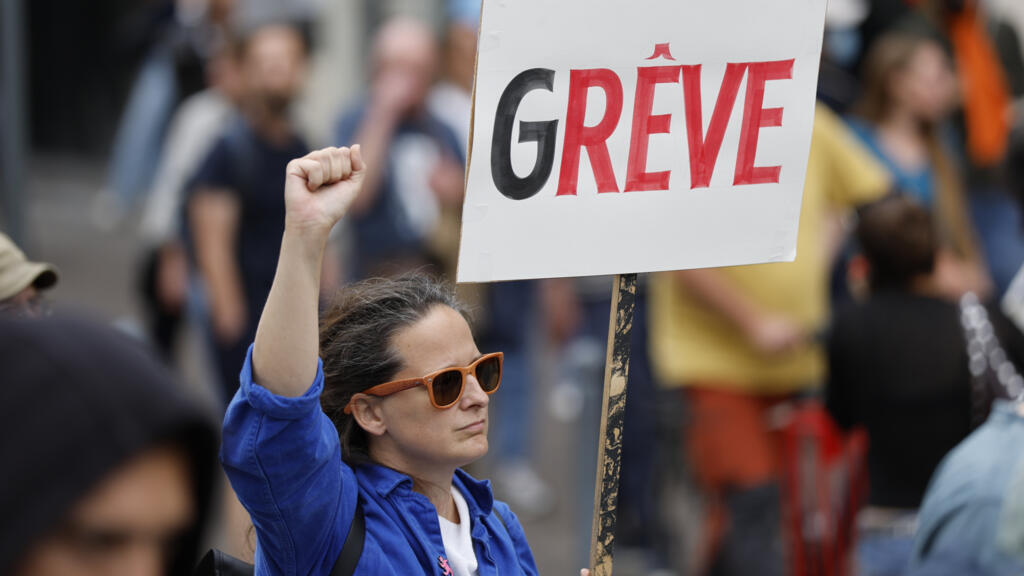 Prime Minister Keir Starmer and French President Emmanuel Macron, right, talk during a joint military visit to the MARCOM centre, maritime command centre in Northwood, London, Thursday July 10, 2025.
Prime Minister Keir Starmer and French President Emmanuel Macron, right, talk during a joint military visit to the MARCOM centre, maritime command centre in Northwood, London, Thursday July 10, 2025.The UK and France unveiled a “one in, one out” deportation scheme back in July meant to tackle the influx of small boats arriving on British shores.
The pilot program is meant to send migrants who had travelled to the UK via small boat – and had their asylum claim withdrawn or declared inadmissible – returned across the Channel.
In return, the UK would accept someone with a case for protection as a refugee who has not attempted to cross the Channel.
But, two months later, and not one person has been returned to France – even though it was meant to start this week.
The scheme hit a fresh roadblock overnight. Here’s what you need to know.
Why did this week’s planned deportations get delayed?
A 25-year-old Eritrean man who arrived in the UK via a small boat won a last-minute legal claim which temporarily blocked his forced removal to France.
The man in question was meant to be going to France on Wednesday – part of the first cohort expected to be relocated from immigration removal centres in the UK back to Paris.
But he successfully launched the first legal challenge against the deal in London’s High Court – and has (temporarily) won.
His team argued that he needed more time to prove that he may have been a victim of modern-day slavery, which would make him more eligible for asylum in the UK.
His lawyers argued that the decision to remove him was too rushed.
It means other migrants could use the same grounds to delay or block their removals.
The Home Office’s lawyers initially argued he could have claimed asylum in France.
During the hearing, it was revealed that officials had rejected his claim that he was a victim of slavery – but also admitted he had a right to make further representations and would not expect him to do so in France.
While the High Court denied the man would be left homeless in France, the judge chose to block his removal, especially if there is “reasonable suspicion that he was trafficked”.
His lawyers have 14 days to prove his case.
Has the whole scheme unravelled?
No – but it’s not off to the best start.
The government insisted it was “confident in the legal basis for this pilot, we’ve taken steps to ensure it’s compliant with domestic and international law; as with any policy, we’re prepared to respond to any legal scrutiny that occurs”.
Science secretary Liz Kendall told the BBC that the ruling was “an interim judgement on one individual”, and so it would not stop the whole deal.
“It will not stop this really important deal from going ahead, a deal that says if you come to this country illegally, you can and you will be deported,” Kendall said.
She said they never promised this deal would be “a silver bullet to tackle all of the problems” but said the home secretary, Shabana Mahmood, was determined to make sure it works.
There is still plenty of resistance to the agreement, though.
Sile Reynolds, head of asylum advocacy at Freedom from Torture, said: “A system that horse-trades vulnerable human beings, as this scheme does, is not only unfair and dehumanising but fails the test of protecting those who need it most.
“This deal relies on the harmful detention and forced removal of people who have just endured a horrific journey because they have no other way to find protection in the UK.
“Accelerated processing denies people a fair hearing and the chance to evidence their vulnerability, as the High Court’s recent decision to delay the removal of one young survivor of trafficking clearly shows.”
What happens next?
It’s likely this incident will revive calls for the UK to leave the ECHR – the European Convention on Human Rights.
Right-wing critics like Kemi Badenoch have called for “some tough laws”, claiming: “We are basically turning our country into a refuge for anyone who may have even the slightest bit of unhappiness in any other country.”
She is expected to push for the government to withdraw completely from the ECHR at the Tory conference later this month, although Labour has only suggested it would be open to amend the treaty, not dropping out altogether.
Meanwhile, the initial small boats crisis continues – more than 31,000 people have crossed the Channel so far this year.
















 Bengali (Bangladesh) ·
Bengali (Bangladesh) ·  English (United States) ·
English (United States) ·